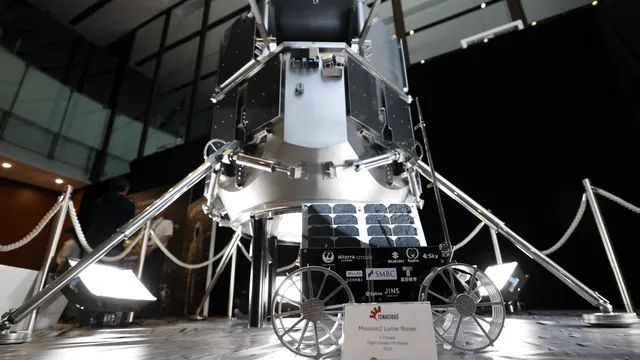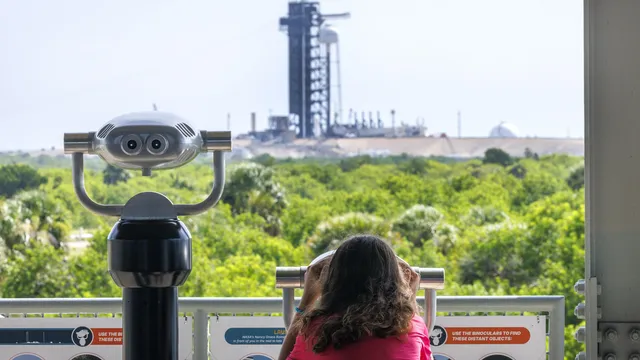Japan's hopes of achieving the first soft landing on the moon by a private company were dashed when the mission was terminated after a suspected crash landing, the start-up company said.
Tokyo-based ispace had hoped to make history as the third private company — and the first outside the US — to achieve a controlled landing on the lunar surface.
But “based on the available data... it is currently assumed that the lander likely performed a hard landing,” the startup said.
“It is unlikely that communication with the lander will be restored,” so “it was decided to terminate the mission,” ispace said in a statement.
The failure comes two years after a previous mission ended in disaster.
The company's unmanned spacecraft Resilience began its difficult final descent and “successfully fired its main engine as planned to begin deceleration,” ispace announced.
The mission control center confirmed that the lander's position was “almost vertical,” but then contact was lost and the mood on the live broadcast from mission control turned grim.
Technical problems meant that “the lander was unable to slow down enough to reach the required speed for the planned moon landing,” ispace said.
High-profile payloads
So far, only five countries have achieved a soft landing on the moon: the Soviet Union, the United States, China, India, and most recently Japan.
Now private companies are joining the race, promising cheaper and more frequent access to space.
The Resilience lander carried several high-profile payloads.
These included Tenacious, a micro rover manufactured in Luxembourg; an electrolyzer to split hydrogen and oxygen molecules; a food production experiment; and a probe to measure radiation in deep space.
The rover also carried Moonhouse, a model of a house designed by Swedish artist Mikael Genberg.
“I take the fact that the second landing attempt failed seriously,” Chief Executive Officer Takeshi Hakamada told reporters.
“But the most important thing is to use this result” for future missions, he added, describing a “strong will to move forward, even though we need to carefully analyze what happened.”
Last year, Houston-based Intuitive Machines became the first private company to reach the moon.
Although the unmanned landing module touched down at a strange angle, it still managed to complete its tests and transmit images.
Then, in March this year, Firefly Aerospace's Blue Ghost, launched on a SpaceX rocket, and ispace's Resilience successfully landed on the moon.
Never give up
The mood before the attempt was festive, with ispace's US branch in Washington organizing a party to watch the event.
After contact was lost, commentators on ispace's live broadcast said goodbye with the message: “Never give up on the moon mission.”
The mission aimed to collect two samples of lunar soil and sell them to NASA for $5,000.
Although the samples will remain on the moon, the symbolic deal is intended to reinforce the US position that commercial activity — albeit without sovereign claims — should be allowed on celestial bodies.
Landing on the moon is extremely difficult, as spacecraft must rely on precisely controlled engine burns to slow their descent over the treacherous terrain.
Intuitive Machines' second attempt to land on the moon ended in disappointment at the end of March.
The Athena spacecraft, designed to land at a site called Mons Mouton – closer to the Moon's south pole than any previous mission – overturned and failed to recharge its solar-powered batteries. |BGNES

 Breaking news
Breaking news
 Europe
Europe
 Bulgaria
Bulgaria







